A Guide to Your Franchise Auteurs
When indie favorites level up to studio blockbusters, do they lose themselves in the process? 'Twisters,' 'A Quiet Place: Day One,' and other mega-productions suggest different answers.
Hollywood in 2024 isn’t exactly the New Hollywood of the 1970s, or even the ‘80s, ‘90s, and early aughts, when it was still theoretically possible to make a studio-funded original film at a reasonable scale. And so acclaimed indie directors looking to level up to the mainstream are often faced with a choice: Either continue rattling the cup for smaller projects or try to put their authorial imprint on big-budget franchise sequels, prequels, sidequels or reboots. This summer, the directors of 2020’s Minari and 2021’s Pig, two of the most critically celebrated American independent films of their respective years, have parlayed their success into tentpoles with Twisters and A Quiet Place: Day One, and they’re certainly not the first to do it. But how much of their auteur vision survives the transition? Are they smuggling personal themes into heat-and-serve blockbusters or just cashing a very fat paycheck? Here’s a guide to how our franchise auteurs have fared:
Twisters (2024)
Director: Lee Isaac Chung.
Résumé: Chung’s road to directing a sequel to Twister started improbably enough in Rwanda, where he made his 2007 debut Munyurangabo, a drama about how the impact the country’s 1994 genocide has over a friendship between two boys. But he’s best known for his semi-autobiographical 2020 film Minari, about Korean immigrants who move from California to the middle of rural Arkansas in an effort to grow Korean vegetables in its fertile soil. (He also directed an episode of The Mandalorian, so the pivot to the mainstream isn’t completely out of the blue.)
Auteur touches: The opening shot of Twisters, with its protagonist considering the possibilities of an open field in Middle America, makes the Minari-to-Twisters transition seem like a natural for Chung, who’s only having to move one state to the southwest. And perhaps you could argue that Chung feels a particular affinity for farmers who can have their lives and livelihoods upended by a bad drought, say, or an EF5-level tornado.
‘Un Film De’ Rating: 2 (out of 10). But let’s be serious: You couldn’t guess Chung directed Twisters if you were given a thousand tries. This may be skillful journeyman’s work, but it’s still a down-the-middle studio sequel about storm-chasers with backstories, CGI debris storms, and seat-rattling sound effects. To paraphrase Dorothy, we’re not in Rwanda anymore.
A Quiet Place: Day One (2024)
Director: Michael Sarnoski.
Résumé: Sarnoski only had one feature to his credit before making the leap to a Hollywood horror prequel, but 2021’s Pig is one of the most promising indie debuts in years, an eccentric character piece that sounds like a porcine John Wick about a recluse (Nicolas Cage) avenging the loss of his stolen truffle pig, but has unexpected dimensions of dark comedy and existential malaise. And that’s to say nothing of its revelations about Portland’s fine dining underworld.
Auteur touches: A temperamental loner whose closest companion is an animal? Big fat checkmark! A Quiet Place: Day One may be a prequel that imagines the apocalyptic moment when sound-sensitive aliens swooped down to wipe out humanity, but it’s also, more intimately, about a cancer patient (Lupita Nyong’o) on hospice and the very good kitty-cat who keeps her company. Like Cage in Pig, she does reluctantly interact with other people, chiefly a scared British law student who clings to her like a barnacle, but the cat is the emotional tone-setter for the entire film.
‘Un Film De’ Rating: 8 (out of 10). Sarnoski has to pay off the obligatory attack sequences of John Krasinski first two Quiet Place movies on a much grander scale, given that this prequel takes place in fully populated New York City rather than a decimated swath of countryside. But his reluctance to do so is almost palpable. Surviving the alien onslaught is not the goal for a woman who’s going to die regardless. Pizza and friendship are more on the film’s mind.
Eternals (2021)
Director: Chloé Zhao.
Résumé: Zhao pulled up to the MCU having just won Best Director and Best Picture for Nomadland, her road movie about a middle-aged widow living out of a van in the gig economy. With films like Nomadland, The Rider and Songs My Brothers Taught Me, Zhao developed a docs-fiction hybrid style that constructed stories around many nonprofessional actors and improvised dialogue, with a special interest in marginalized people, particularly of indigenous origin. Not the most obvious candidate for a comic-book movie and yet…
Auteur touches: … Zhao co-wrote and directed Eternals, a superhero team-up about immortal aliens that reputedly drew inspiration from Terrence Malick, whose own yen for natural beauty and on-set spontaneity has made him a natural comparison to Zhao from the beginning. The pre-release hype for Eternals made the location work around this extraterrestrial film sound like photography had been reinvented anew, with Kevin Feige marveling about actual sunsets and waves. (“I had to keep saying, ‘This is right out of a camera; there’s no VFX work to this at all!”)
‘Un Film De’ Rating: 3 (out of 10). Though Zhao does indeed bring these aliens to gorgeous real-world terra firma, their powers are so overwhelmingly unnatural that Eternals is awash in CGI regardless, which feels like a battle she was inevitably going to lose. Despite her hand in the script, alongside three other credited writers, Zhao doesn’t further any of the themes of her previous work and reveals a particular weakness in handling the light between-missions banter of an MCU movie. The neither-here-nor-there approach makes Eternals estranging to indie and mainstream types alike.
Captain Marvel (2019)
Directors: Anna Boden and Ryan Fleck.
Résumé: In the decade-plus before Marvel came calling, Boden and Fleck were socially conscious filmmakers of the John Sayles school, known for dramas like Half Nelson and Sugar that connected with real-world issues like addiction and the immigrant experience. Add to that Mississippi Grind, their California Split-esque portrait of two gamblers chasing losses in the Deep South and their indie bonafides are secure.
Auteur touches: Beyond the corporate-feminist achievement of being the first MCU movie built around a woman hero, Captain Marvel could also be read as an allegory for the fight over immigration as Carol Danvers (Brie Larson) finds herself in the middle of an intergalactic war between the Skrulls and the Kree. The Kree are the genocidal imperialists in this scenario, othering the Skrulls as terrorists when they’re more like refugees, fleeing with women and children.
‘Un Film De’ Rating: 2 (out of 10). It takes a lot of squinting to see what Boden and Fleck do with Captain Marvel that another director or directors might have done in their place, which is a testament to how much control producer Kevin Feige asserts over the entire enterprise. Even in an area where Boden and Fleck could have made a difference, like evoking the particulars of the film’s mid-‘90s setting, they fall back on the most obvious mainstream markers, like a sequence set in a Blockbuster Video and an alternative-rock soundtrack that has none of the eclecticism of James Gunn’s Guardians of the Galaxy movies.
Bumblebee (2018)
Director: Travis Knight.
Résumé: The son of Nike honcho Phil Knight, Travis Knight did the failson move of recording a 1993 rap record under the name “Chilly Tee.” He rebounded a decade later, however, as the VP and animator for the terrific Laika studios, producing ParaNorman and The Boxtrolls before directing the best of the Laika movies, 2016’s Kubo and the Two Strings.
Auteur touches: How do you go from a Hiyao Miyazaki-inspired stop-motion fantasy set in feudal Japan to a spinoff of a critically reviled Hasbro franchise directed by Michael Bay? For a rapper turned animator, perhaps such transitions are easier than they sound. There’s a mythology to the Transformers just as there were traditions for Knight to tinker with in Kubo and the Two Strings, and the relatively scaled-down intimacy of Bumblebee, tied to the relationship between Hailee Seinfeld’s car-crazy California misfit and a sentient 1967 yellow Volkswagen Beetle gives Knight the opportunity to shift gears.
‘Un Film De’ Rating: 7 (out of 10). There’s no getting around the fact that audiences expect another showdown between the Autobots and the Decepticons, but Bumblebee is much better than it has any right to be due to Knight’s character-first approach to an effects-driven series. Knight finesses a warmer, more family-friendly action-fantasy than Bay could ever conceive, and when it does come time for the Beetle to transform and join the fight for the universe, there are real emotional stakes. That’s no small feat, even for a film this superfluous.
Halloween (2018)
Director: David Gordon Green.
Résumé: Green opened his career with the Malick-inspired George Washington, the offbeat romance All the Real Girls, and the bleak dramas Undertow and Snow Angels. He would then transition to Hollywood with a series of lowbrow, wake-and-bake comedies: Pineapple Express, Your Highness, and The Sitter. Then it was back to indies with Prince Avalanche and Joe, and another lurch toward mainstream respectability with the docudrama Our Brand is Crisis and the sports drama Stronger. He also teamed up with Danny McBride and Jody Hill on various TV projects like Eastbound & Down and The Righteous Gemstones. David Gordon Green is like a land of contrasts.
Auteur touches: ¯\_(ツ)_/¯ . Sometimes he’s in Terrence Malick mode, sometimes he’s doing a gender-reversed version of Adventures in Babysitting. Either way, Green does have an affinity for the films of the ‘70s and ‘80s, and a rebooting/continuation of the Halloween franchise—as opposed to Rob Zombie’s more auteur-like repurposing—seems completely in character.
‘Un Film De’ Rating: 10 (out of 10). Or 0 (out of 10). Who can say what a David Gordon Green film is anymore?
Thor: Ragnarok (2017)
Director: Taika Waititi.
Résumé: Arriving in a wave of quirky New Zealand comedy that included many regular collaborators, particularly Jemaine Clement, Waititi quickly earned a reputation for the offbeat with wistful films like 2010’s Boy and 2016’s Hunt for the Wilderpeople, and the 2014 deadpan delight What We Do in the Shadows, which he’s later adapt into an ongoing television series.
Auteur touches: The heroes of the MCU have never been as burdened as their DC counterparts, but Waititi’s willingness to have fun with the Thor character stands out, particularly in contrast to the dead-end murkiness of the previous entry, Thor: The Dark World, and even the Shakespearean overtones of the first Thor. Waititi seizes on Chris Hemsworth’s gift for fish-out-of-water comedy and lightens the tone considerably. Thor: Ragnarok may look like other MCU movies, but save maybe for 2015’s Ant-Man, none to this point had been so breezy.
‘Un Film De’ Rating: 9 (out of 10). There’s often a square peg/round hole problem with filmmakers trying to work within the system, but Waititi has no trouble squaring his sensibility with the larger goals of the MCU. At the same time, Thor: Ragnarok is the brazen gut-rehab project the Thor movies needed to get back on track after The Dark World, and Waititi’s reimagining of the series is as close as the MCU has gotten to a radical change of course. (Too bad Waititi immediately ran it into the ground with Thor: Love and Thunder.)
Star Wars: Episode VIII: The Last Jedi (2017)
Director: Rian Johnson.
Résumé: A graduation into studio filmmaking always seemed in the cards for Johnson, but his shoestring neo-noir debut Brick showed an aptitude for quicksilver wit and a deep understanding of genre mechanics. The Brothers Bloom extended that sleight-of-hand cleverness into the caper comedy and Looper was a sign that he could make a star-led studio science fiction thriller that was nonetheless dense with themes and relentless twists of the plot.
Auteur touches: To direct a Star Wars movie is to operate within a very small box, here narrowed by the long-established mythology of two previous trilogies, the table-setting of J.J. Abrams’ The Force Awakens, and the online hordes who would appoint themselves guardians of a franchise that they didn’t believe should change after 40 years. And yet Johnson brings an operatic zestiness to The Last Jedi that’s well-suited to the space adventure while shifting focus to the women in his cast as the primary drivers of change.
‘Un Film De’ Rating: 8 (out of 10). Had reaction to Johnson’s tweaks to the Star Wars universe not been read as childhood-destroying heresies in some corners, this number might have been lower, given how much he labors to satisfy fans of the series. (Those cute little porgs are the most shelf-ready stuffed animal candidate since the Ewoks.) But there’s a bravado to The Last Jedi that stands apart from the fan service of Abrams’ bookends, tied to Johnson’s sense of style and his willingness to drag the franchise kicking and screaming into the 21st century.
Creed (2015) and Black Panther (2018)
Director: Ryan Coogler.
Résumé: After a USC film school stint that won him a number of awards for shorts, Coogler graduated into features with 2013’s Fruitvale Station, a docudrama about Oscar Grant, a young Black man who was shot by police at an Oakland BART station on New Year’s 2009. In retrospect, the film seems like a calling card for Coogler and his star, Michael B. Jordan, to take on larger projects in Hollywood…
Auteur touches: .. and take on those larger projects they did, first with a Rocky reboot built around the son of Rocky Balboa’s chief rival, Apollo Creed, and then with an MCU movie set in the fictional African tech-utopia of Wakanda. Both cases are sterling examples of changing the system from the inside: Creed pulls the focus away from a white Italian boxer whose toughness was an answer to Apollo’s champion’s arrogance, choosing instead to contend with a son haunted by his father’s legacy on top of his absence. Black Panther more simply represents Black power in a genre where the vast majority of superheroes are white, though Jordan’s Killmonger character complicates matters by pressing for a revolution that does not sound unreasonable.
‘Un Film De’ Rating: 9 (out of 10). Coogler gets one point off for the sections of Black Panther that seem obviously wrangled by the MCU’s special effects unit, which does not cover itself in glory, particularly in the sloppily rendered climax. But it seems obvious now that Fruitvale Station wasn’t an example of an indie director co-opted by Hollywood, but a young director with mainstream ambitions who needed to prove himself on a smaller scale. Creed and Black Panther are as fully Coogler’s vision as the system will allow them to be.
RoboCop (2014)
Director: José Padilha.
Résumé: The politics of this Brazilian director have always been a little hard to track, particularly as it relates to the police. His brilliant 2002 documentary Bus 174, about the hijacking of a bus in Rio de Janeiro, delves into the hijacker’s roots in the city’s destitute favelas while exposing the ineptitude of the authorities in handling this volatile situation. When he shifted to features, however, with Elite Squad and Elite Squad: The Enemy Within, his dynamic action thrillers about a special police battalion, some critics were outraged over his seeming approval of violent tactics.
Auteur touches: Padilha’s interest in politics and facility with action sequences made him an inspired choice for a RoboCop reboot, which would at least need to nod at the satirical bite of Paul Verhoeven’s original film. And he seem primed to capitalize on the juicy conceit of OmniCorp robotic “peacekeepers” being sent to fight America’s wars overseas on behalf of the military-industrial complex. There’s no reason, based on his previous work, that Padilha couldn’t have pulled off the technical and political challenges of the film, but this Robocop feels woefully compromised.
‘Un Film De’ Rating: 3 (out of 10). Was Padilha, making his first English-language film, compromised in a way that Darren Aronofsky, who was originally attached to the project, would not have been? Or did he simply whiff on a great idea? No behind-the-scenes details have emerged for clarity’s sake, but RoboCop shows enough faint signs of the 21st century action-satire it might have been to suggest that Padilha was streamrolled into making a more compromised film. The result is a victory for the OmniCorps overlords who financed it.
Harry Potter and the Prisoner of Azkaban (2004)
Director: Alfonso Cuaron.
Résumé: Cuarón hadn’t even fully hit his stride when he got the chance to direct the third Harry Potter movie—Children of Men, Gravity, and Roma were still in the future. But he had emphatically proven his kid-movie bonafides with the lovely 1995 adaptation of A Little Princess and his very-much-not-a-kid-movie bonafides with 2001’s Y tu mamá también.
Auteur touches: As with A Little Princess, Prisoner of Azkaban respects the sophistication of its young audience enough not to pander to it, especially at a moment in the series where Harry and the gang have been through a couple of adventures already and are growing into the darker world their powers have inherited. But the big leap here is stylistic: The first two Harry Potter movies, by Chris Columbus, have a pedestrian quality of an illustrated companion to the books, but Cuarón brings a level of imagination and technical bravado to the series that sets his film apart.
‘Un Film De’ Rating: 8 (out of 10). The Columbus movies had so firmly established the template for how the Harry Potter films would look and feel through the entire run that there’s only so much Cuarón can do. But within those limits, he directed not only the best film of the series, but a pivotal entry that ushered the audience into a knottier, more grown-up vision of YA fantasy.




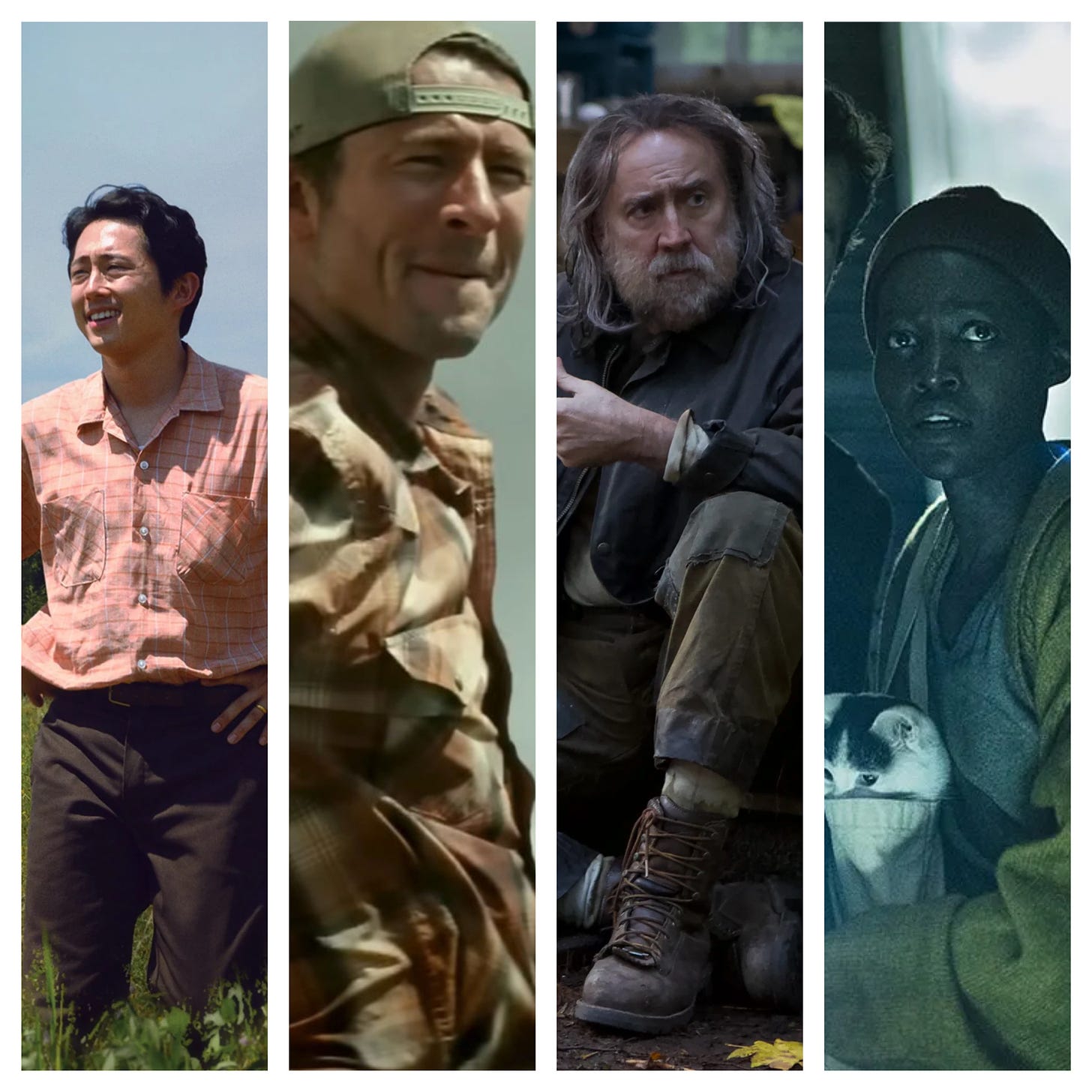
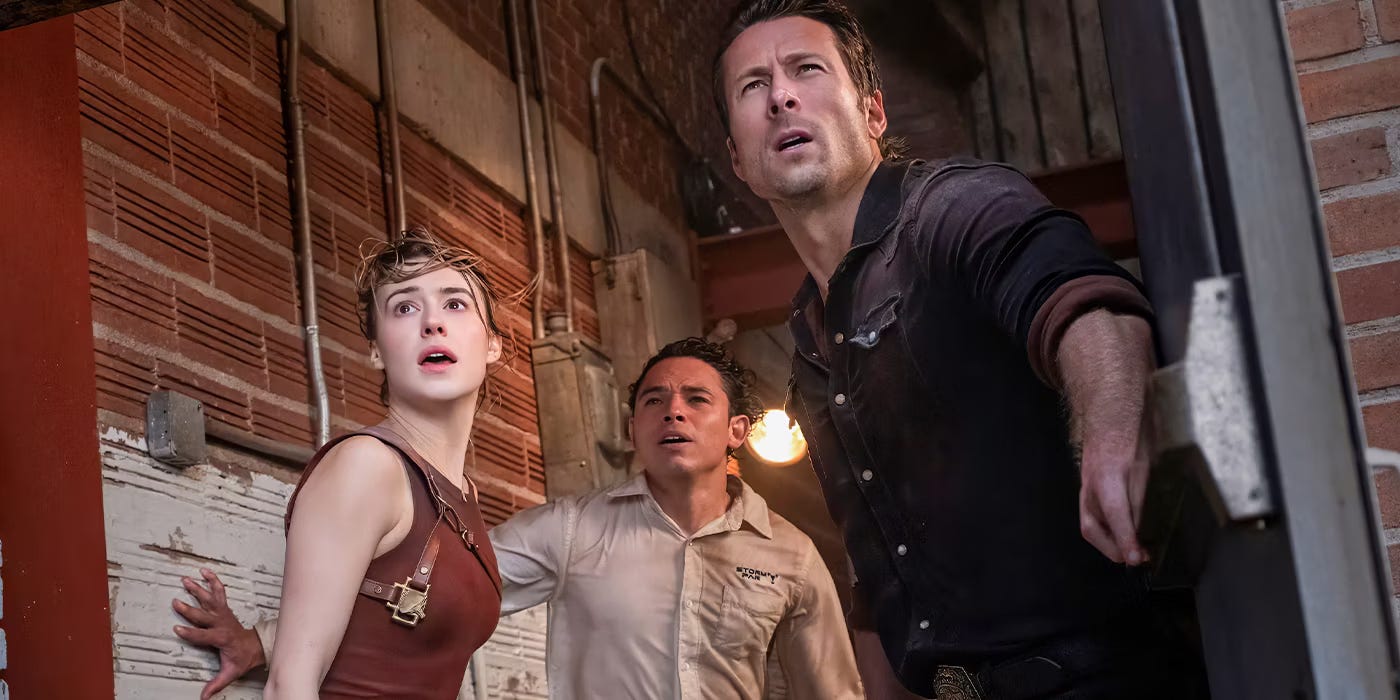
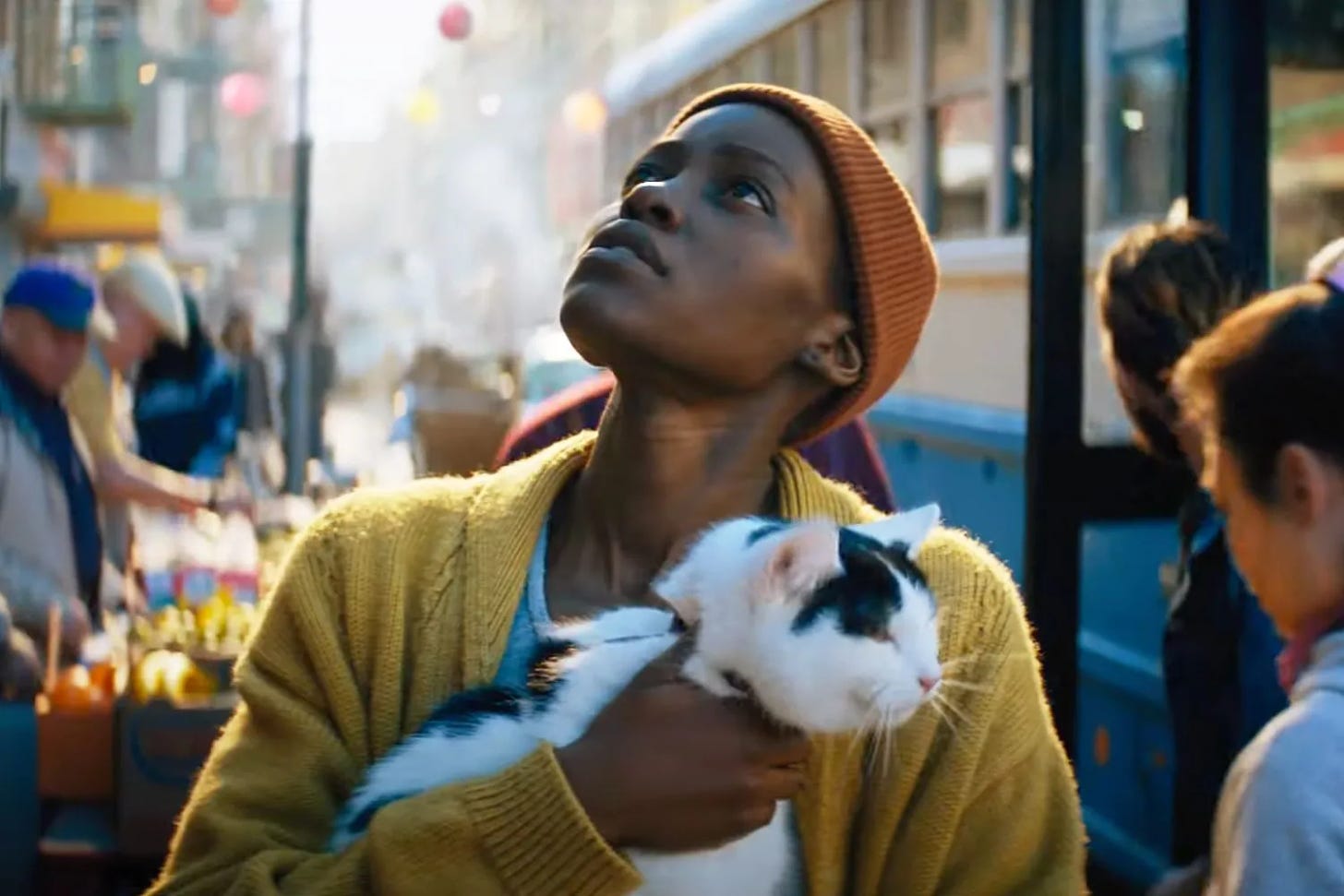
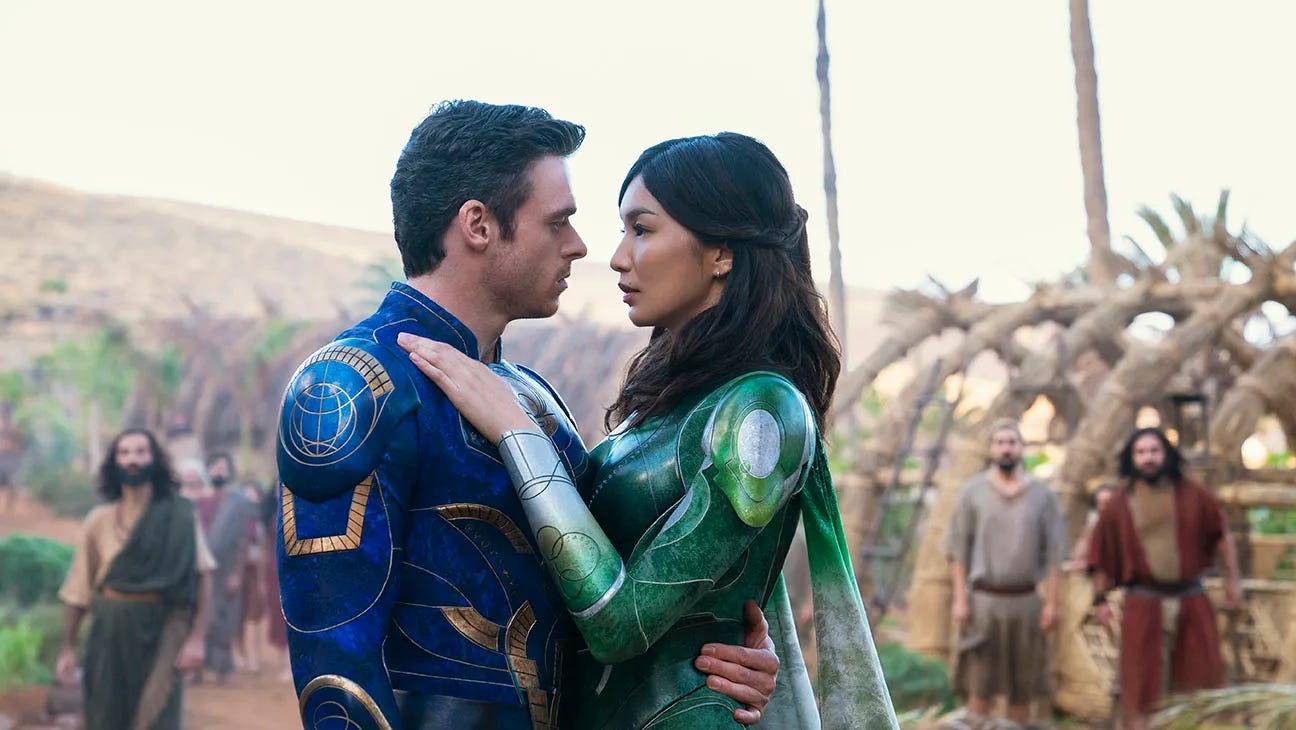
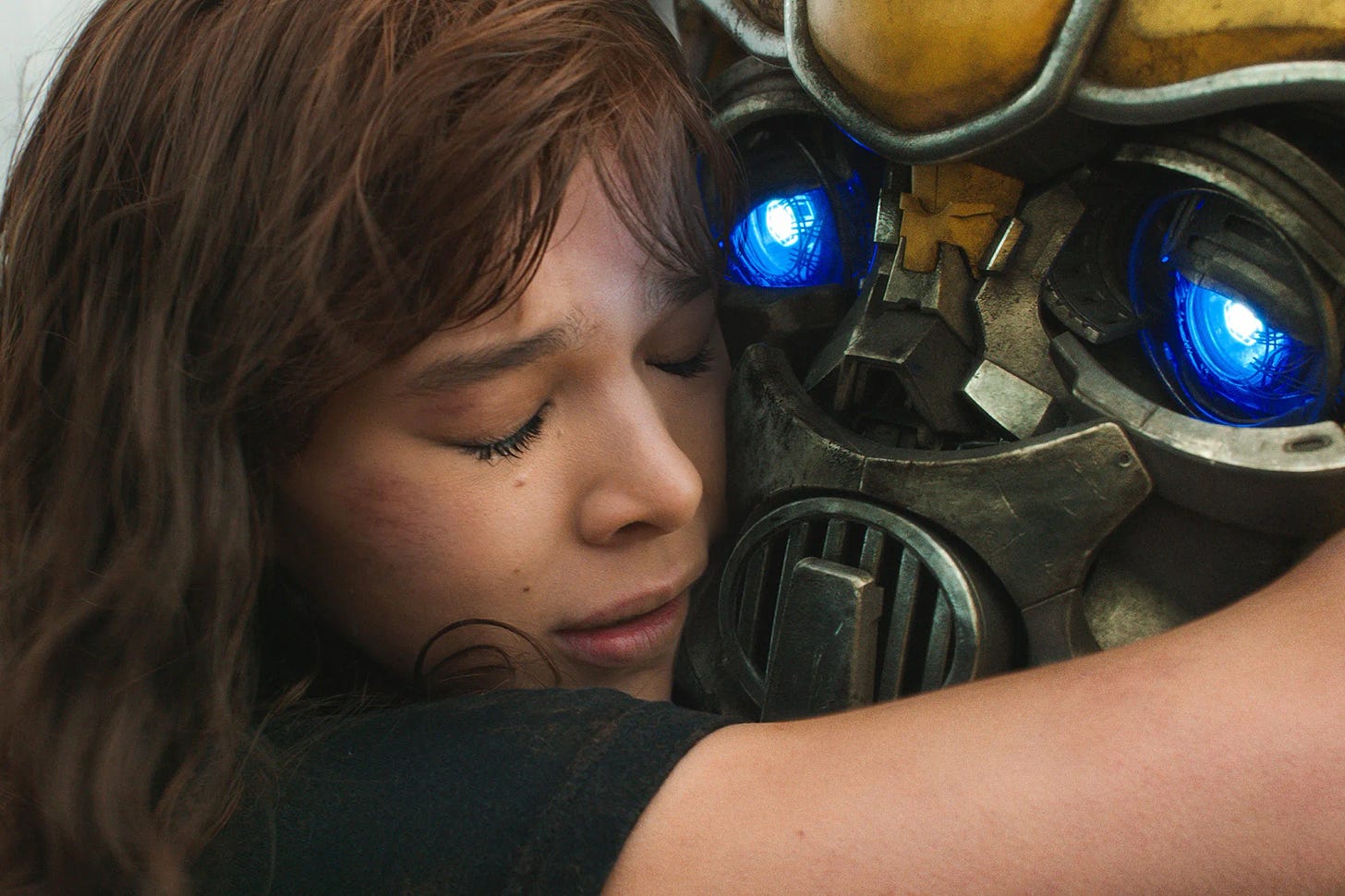
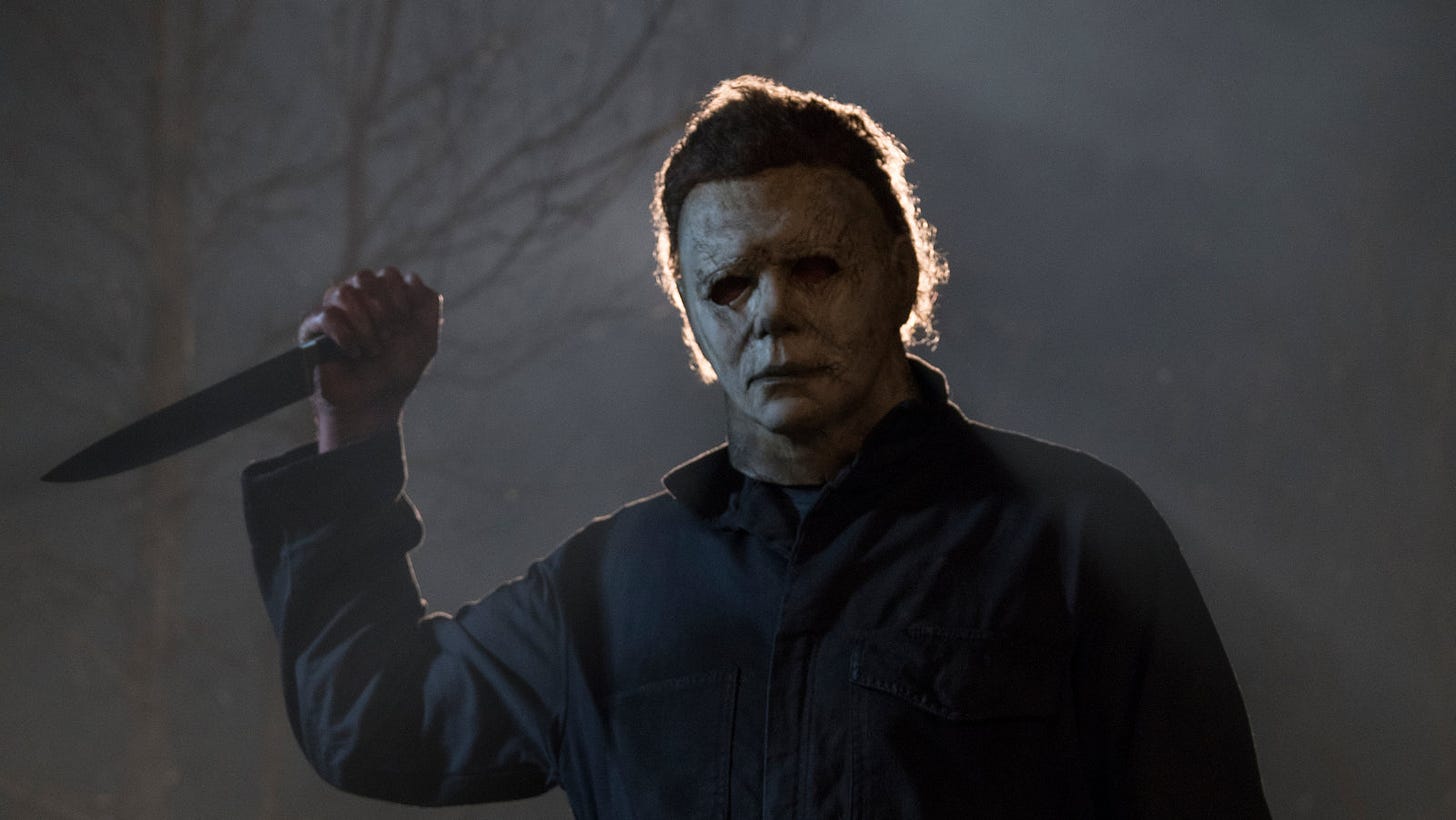
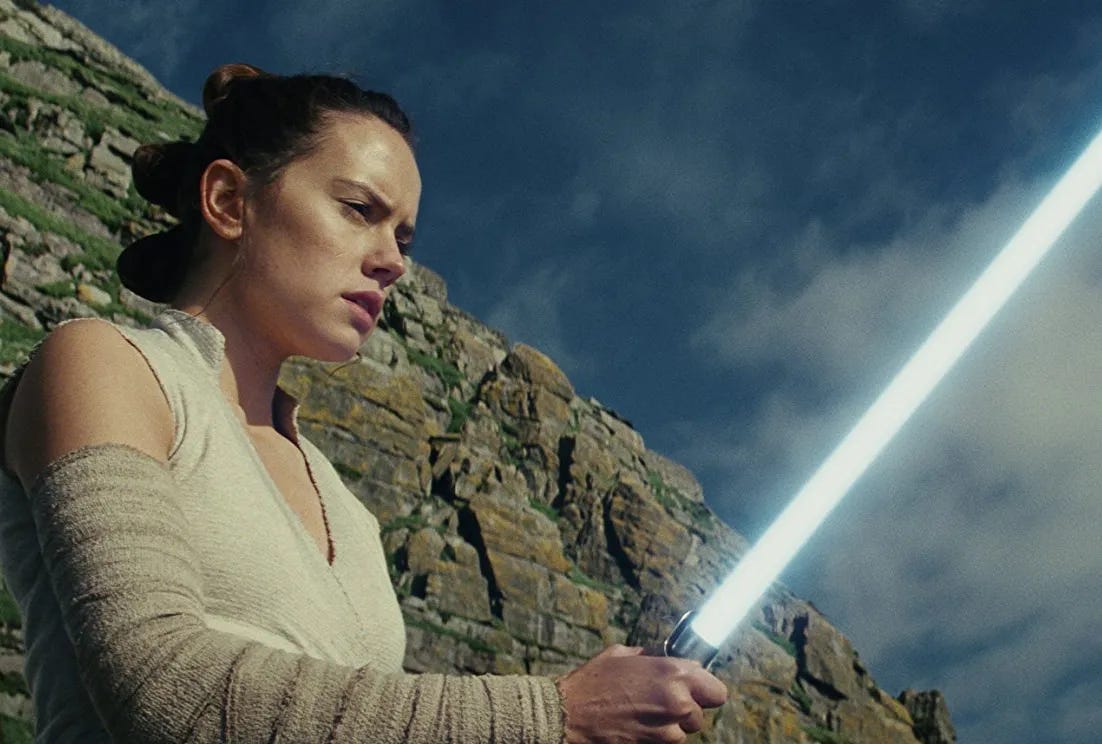
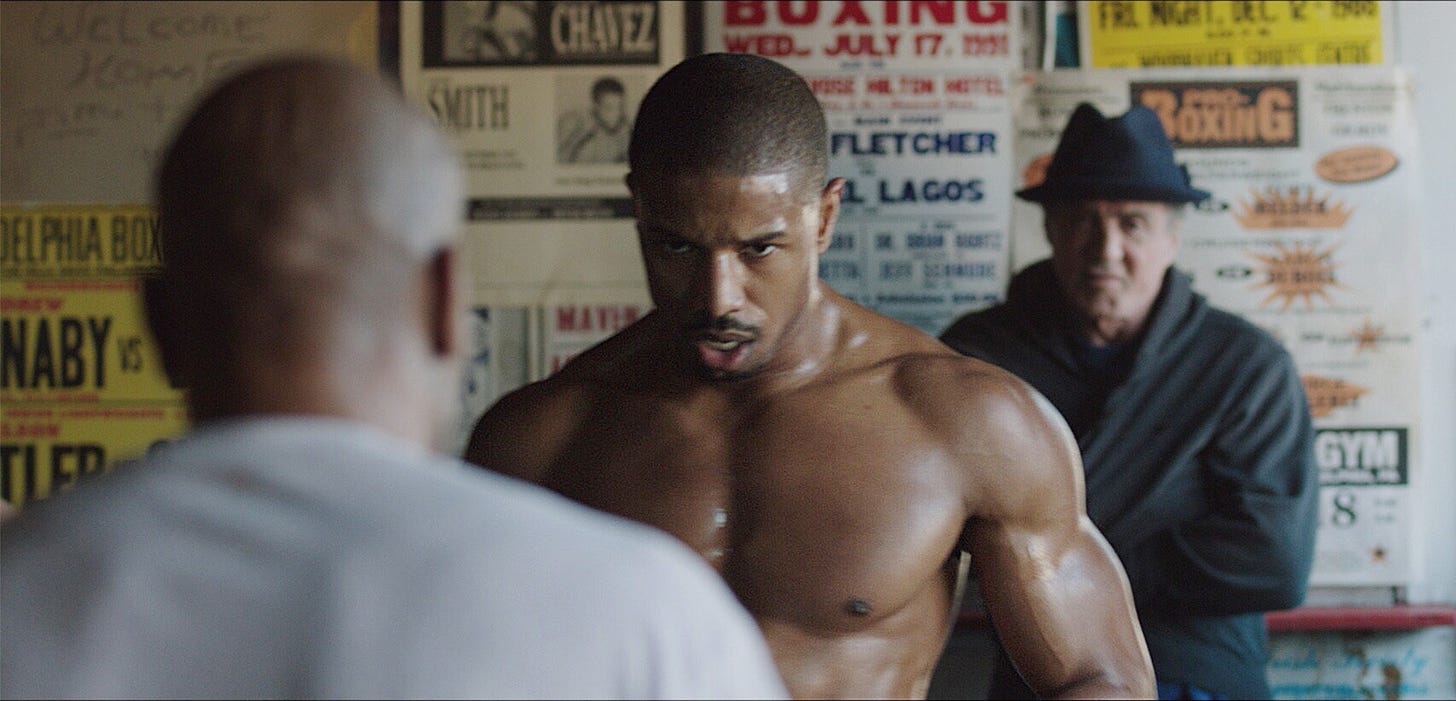
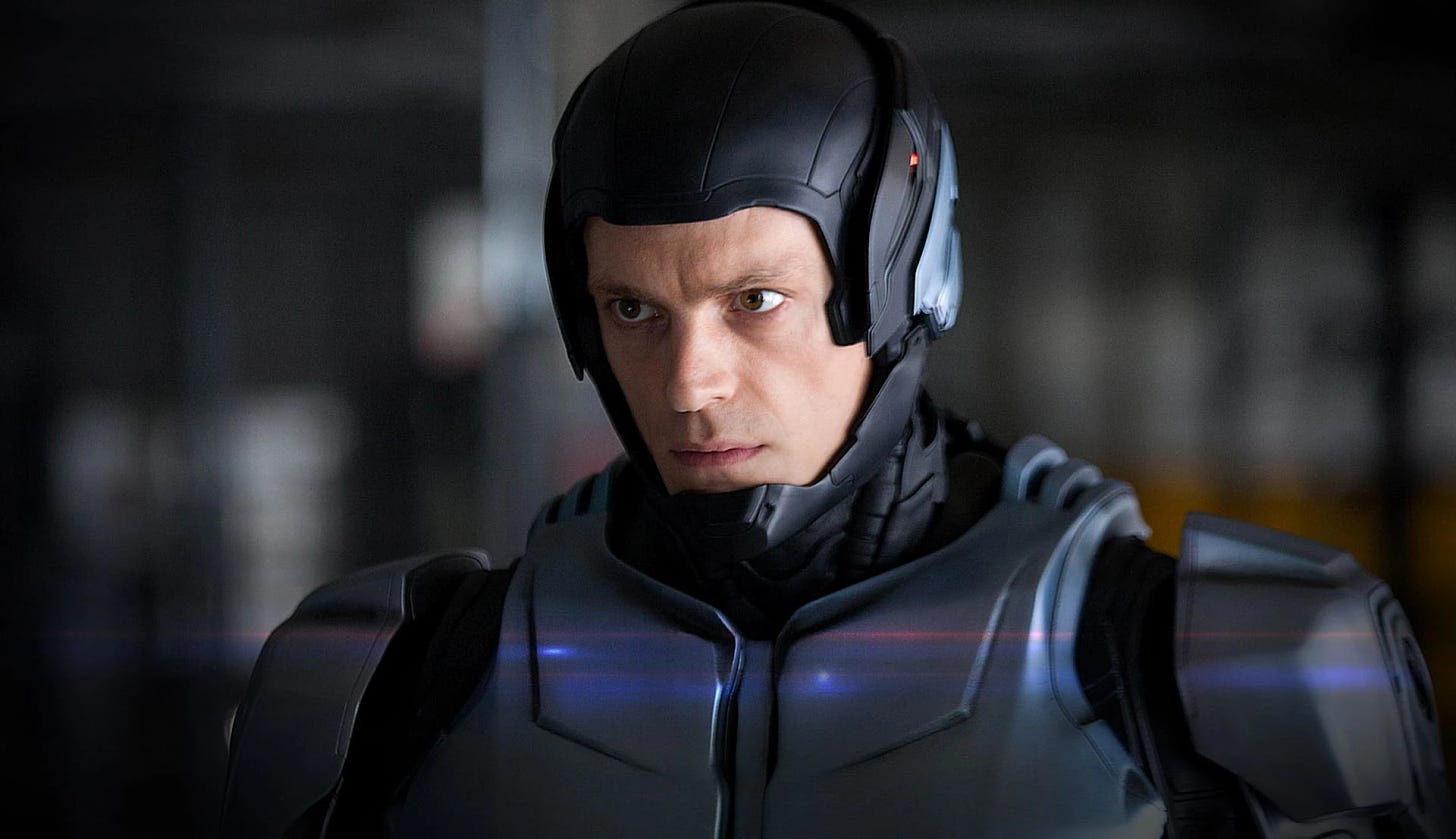
A BlueSky follower asked why I didn't do Ben Wheatley's MEG 2 and now I want to just tear this whole thing up. How could I forget?!?!
Okay, I am starting the petition here to make this one of the features that gets annual updates (like Keith's ever-growing Nicolas Cage filmography reviews) and that's only partially because I am dying to see what happens with Barry Jenkins doing a prequel to a CGI Lion King remake.